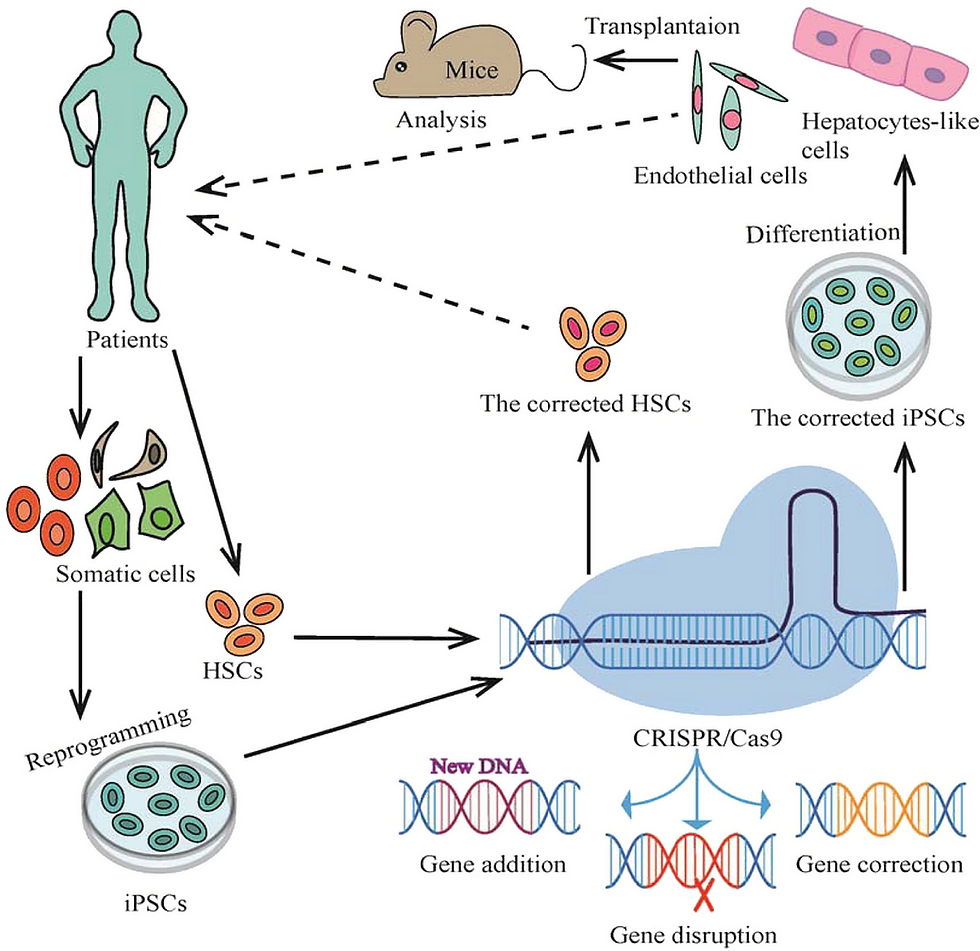🧬 CRISPR Gene Editing: A New Era in Preventing Hereditary Diseases
- Dr Libero Oropallo
- Apr 24, 2025
- 2 min read
Precision Medicine Through Gene Editing. CRISPR Gene Editing: A New Era in Preventing Hereditary Diseases
CRISPR-Cas9 technology has revolutionized the field of genetics by enabling precise, efficient, and cost-effective editing of DNA. This advancement holds significant promise for preventing and treating hereditary diseases by correcting genetic mutations at their source.

Landmark Clinical Applications
Sickle Cell Disease and Beta-Thalassemia
In 2023, the FDA approved a CRISPR-based therapy for sickle cell disease, marking a significant milestone in gene editing applications. Patients treated with this therapy have shown remarkable improvements, reducing the need for regular blood transfusions and alleviating disease symptoms .
Similarly, the UK’s National Health Service (NHS) has adopted a CRISPR therapy known as Casgevy for patients with transfusion-dependent beta-thalassemia. Clinical trials have demonstrated that 93% of participants no longer required transfusions for at least a year post-treatment .
Hereditary Transthyretin Amyloidosis (hATTR)
A pioneering clinical trial introduced NTLA-2001, a CRISPR-Cas9 therapy delivered via lipid nanoparticles, targeting the liver to treat hATTR. This approach represents the first systemic delivery of genome-editing components, offering hope for patients with this rare genetic condition .

Advancements in Gene Editing Techniques
Beyond traditional CRISPR-Cas9, researchers have developed advanced methods like base editing and prime editing. These techniques allow for more precise corrections of point mutations without causing double-strand breaks in DNA. Notably, base editing was instrumental in saving the life of a teenager with leukemia by modifying donor immune cells to target her cancer, leading to complete remission .
Future Prospects and Ethical Considerations
The potential of CRISPR extends to a wide array of genetic disorders, including cystic fibrosis, Huntington’s disease, and certain forms of blindness. Ongoing research aims to refine these therapies, ensuring their safety and efficacy for broader clinical use.
However, the application of gene editing raises ethical questions, particularly concerning germline modifications and equitable access to treatments. It is imperative to establish robust regulatory frameworks and engage in public discourse to navigate these challenges responsibly.
Note: For personalized medical advice, consult a qualified healthcare professional.
CRISPR Gene Editing: A New Era in Preventing Hereditary Diseases



Comments